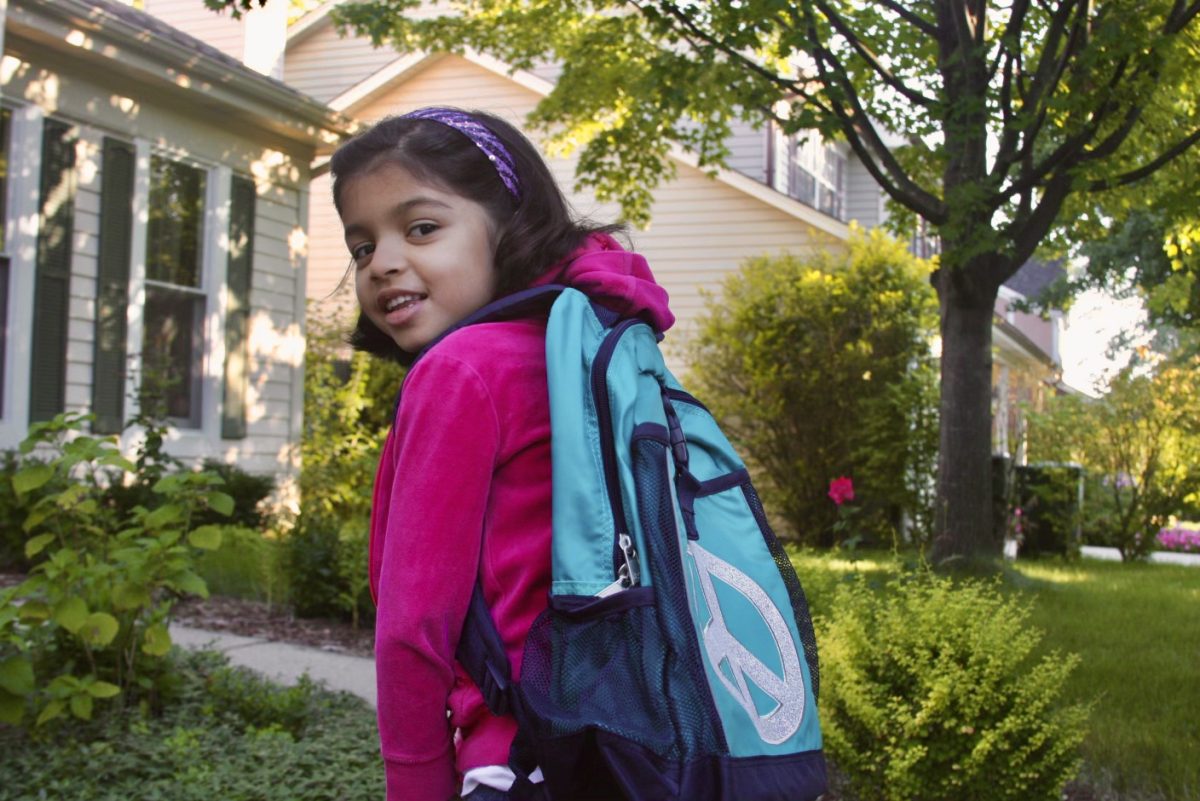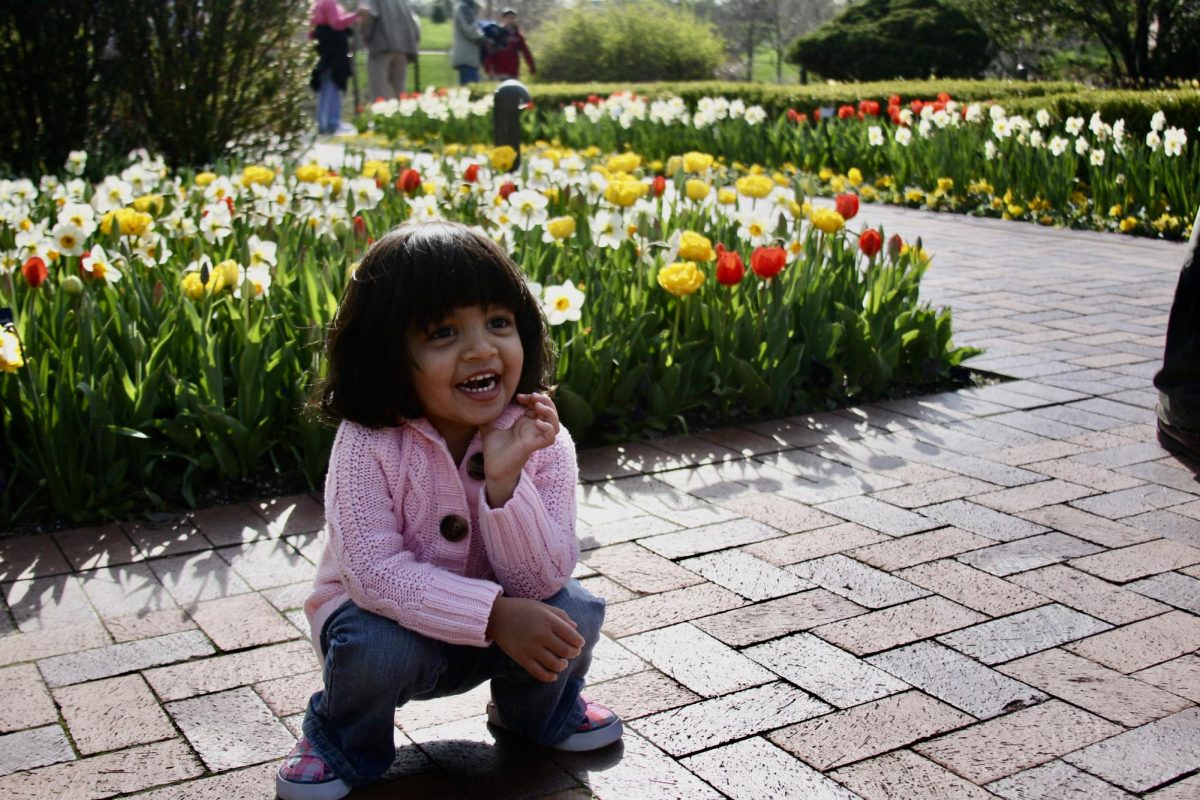
I have always lived with anxiety. Was I aware of it? Not at all. As a little kid, I was your basic definition of a carefree child. Always smiling, always happy, always taking a moment to smell the flowers. Yet as I got older and started school, that carefreeness transformed into a an overgrown mess of constant worry.
Mental illness was not a topic I was familiar with until the end of my freshman year. Growing up in an Indian household, mental health was never a focus, or an issue for that matter. In my experience, South Asian culture tends to brush over mental illnesses as a whole, and pushes the expectation to be as strong and resilient as possible. If I felt otherwise, I was viewed as weak or fragile.
Living in a household with this mindset taught me how to conceal my emotions and any stress I experienced. Anytime I faced a mental roadblock or overload of emotions, I suppressed it all in an effort to preserve my image in the eyes of my family and community.
I would constantly ask myself, ‘What is happening? What is wrong with me? Why was my body acting this way?’ I came to the conclusion that there must be something wrong with my brain, as no one else around me seemed to relate to any of the experiences I was having.
I at least got the brain part correct. Many mental illnesses occur due to chemical imbalances in the brain. Certain hormones and neurotransmitters can be released in abundance or in deficits, different cortices get activated and these can all lead to the physical and mental symptoms many people face with mental illnesses. My AP Psychology class along with the Human Anatomy & Physiology classes were big resources in learning about the brain and how it can create and impact mental health.
Freshman year, I went to tryouts for the girls swim team. I was excessively stressed for at least a week before, wondering if I would make the team. By this point I had already been a part of a club swim team for five years, yet I still questioned my skill level. I grew exhausted from all the overthinking, and I hadn’t even attended the first practice.
Whenever I would bring up these struggles to my parents, they often dismissed any concerns I had about anxiety and stated that I was either resilient enough to push through and go to tryouts, or that I had to back out and face the fact that I wasn’t strong enough to do so.
That’s not to put any blame on my parents. They were as unaware about mental illnesses as I was. Living in India, they faced similar treatment and expectations, and even less education about mental illnesses.
Due to less awareness and a prevalent stigma against mental health in India, most mental health resources are underused, and there is a large amount of discrimination and prejudice against those who express their concerns about mental health, as stated in a 2023 article published in Cureus, a peer-reviewed medical journal.

Trying to learn more about mental health, I turned to my friends. Casually bringing up the topic of mental health in a conversation led to my discovery that a lot of my friends had been to therapy before.
This presented a whole new world to me. I began researching a variety of mental illnesses and their symptoms, leading to me discovering more information about anxiety. Learning about the different symptoms made me wonder whether this was something I could have been dealing with, an actual mental illness, rather than something I was at fault for.
After learning more about my mental health, I built up the courage to bring up the topic of getting a therapist to my mom. It’s no surprise that I was anxious about talking to her, but eventually I was able to sit down and discuss the options I had, along with the truth about how difficult it had been living with my anxiety with no resources to help.
It wasn’t easy at first. My parents had to unlearn everything they had been taught and take a chance to learn something new. Breaking a stigma that has been so heavily embedded in a culture can be difficult. Thankfully, my mom had also been in touch with some other parents who had kids going to therapy. The culture here seemed to chip away at the previously existing stigma my mom had grown up with, and she agreed that therapy could provide some benefits.
I had my first therapy session the summer before my junior year. Sitting down with someone who I was expected to share my vulnerabilities with was challenging for sure. It required me to break down the wall I had around myself and pushed me to share more of my thoughts and emotions rather than suppressing them.
After a few sessions, I was diagnosed with Generalized Anxiety Disorder (GAD). GAD is commonly categorized as “excessive, ongoing anxiety and worry that are difficult to control and interfere with day-to-day activities,” according to the Mayo Clinic.
Processing this diagnosis took some time. I had to work with my therapist to unlearn all my previous notions about mental health. My therapist helped me understand that GAD did not entail something was wrong with me. I hadn’t failed in any way; I was still as capable as before. The one thing that did change was how I approached my anxiety.
Therapy helped me learn about how to deal with my anxiety, and how I can work to minimize its effects rather than fight against them. I learned about the various symptoms of anxiety, such as a decreased immune system, or the constant fight-or-flight response your body experiences with minor decisions.
I realized that I wasn’t always sick because of some random contamination but because my body was always fighting against my anxiety, leaving it with no energy left to fight against sickness. My body and brain viewed running for my life and presenting in front of the class as the same level of danger, as my therapist explained to me.
To combat these overexaggerated reactions from my body, I learned about skills and actions I could take to counteract the effects. When my mind was constantly spinning I could take a moment to box breathe. If I had no one to talk to about what was going on in my brain, I could write it out. I developed a series of phrases I could say to myself when I felt the self-blame creeping up on me.
So what if I have anxiety? I am still able to do everything I need to do. My body is simply looking out for me a little extra.
I am still going to a four-year college on the pre medical track, and I am prepared to work as hard as possible to become a doctor. In fact, I think I can work even harder now that I know how to face obstacles in my path without getting so overwhelmed. Anxiety didn’t take away my goals or dreams, it just compelled me to work harder to achieve them and allowed me to learn more about myself on that path.
If you are someone who might be struggling with anxiety or any other form of mental illness, the most important piece of advice I wish I was told is that asking for help doesn’t make you weak. It doesn’t make you less of a person or take away from anything in your life. There are so many resources available to teenagers, and an abundance can be found within VHHS, along with outside the school walls.
Mental health isn’t a hoax. It is very real, and there is plenty of research to back it up. Fighting against the mental health stigma in any culture or household can be difficult, but a great way to start is by simply educating yourself about mental health. School teaches us some things, but doing your own learning and sharing that information with family and friends can be even more beneficial. And getting help, whether it is through a therapist or guidance counselor or any trusted adult, can make all the difference.
MENTAL HEALTH RESOURCES
SOUTH ASIAN SPECIFIC ONES
• southasiantherapists.org: Helps find local south asian therapists in your area for a better therapy experience!
• South Asian Mental Health Initiative & Network
SCHOOL SPECIFIC RESOURCES
• D128 Calm Space Website: lots of great ways to destress and calm down
• Social workers and counselors located in the LSTs are always available to VHHS students
• VHHS Social and Emotional Wellness Resources: so many helpful tips and advice are located here, along with a lot of local resources!
HOTLINES
• Suicide & Crisis Hotline: 998
• Teen Line: Call 800-852-8336 or text TEEN to 839863
• NAMI Teen & Young Adult Helplines
